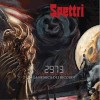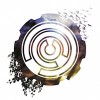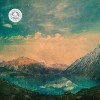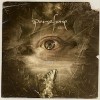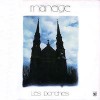Yet another over the top all star project masterminded by Edguy's Tobias Sammet. I think at this point Avantasia is even more popular than Edguy! He always brings together an interesting cast of musicians. This time around he features: Joe Lynn Turner (Rainbow), Eric Martin (Mr. Big), Ronnie Atkins (Pretty Maids), Biff Byford (Saxon), Michael Kiske (Helloween), Arjen Lucassen (Ayreon), Bruce Kulick (Kiss), Russell Gibrook (Uriah Heep), Bob Catley (Magnum), producer extraordinaire Sascha Paeth, and of course The German Film Orchestra Babelsberg. Pure bombastic rock opera stuff."Tobias Sammet, one of the best known names in power metal and for good reason, is a multifaceted musician best known for his vocal and keyboard prowess in the German power metal giant Edguy. Flawlessly possessing keyboard, orchestration, bass, and vocal skills worthy of his fame, Sammet stepped to the side of his work in Edguy and started a symphonic rock/metal side project, Avantasia in the year 2000. Tobias Sammet’s Avantasia, which features Sammet’s talents and abilities to compose and orchestrate perfect, beautiful music, also boasts a roster full of well known names throughout the power metal community such as Kai Hansen, Michael Kiske, Andre Matos, and Jorn Lande. In 2011, Sammet announced the end of Avantasia, however, after that rather depressing announcement, Avantasia is releasing their 6th full length studio album on March 29th, The Mystery of Time.The Mystery of Time features yet another all star lineup. Outside of Sammet’s constant presence, the album features Michael Kiske, Biff Byford, Arjen Anthony Lucassen, and Joe Lynn Turner just to name a few. There are many new vocal presences in the album, different from the usual heard in Avantasia’s past, and it really helps create a refreshing and new sound to the project. As usual however, the production and orchestrations, instrumentation, choir presence, and vocal layering are absolutely spot on. Upon first listen to the album however, I wasn’t completely sold. I felt like a few of the songs were hollow and emotionless. Unlike my favorite albums, The Metal Opera I and II and The Scarecrow, I didn’t get pulled into the record right away. Listening to the album four or five times however, I saw the album for what it truly is, a quite flawlessly executed rock opera.The first track on “Spectres” begins slowly and doesn’t feel like a proper way to kick off an album. The drum work is more fitting of a faster tempo thrash song than the mellow presence of the music throughout the verses. However, as soon as the chorus kicked in I felt that rush of joy and sheer happiness typically expected when listening to Avantasia. Tracks like “The Watchmakers Dream” and “Black Orchid” manage to bring back all of that which I love from Sammet, strong, soaring choruses and beautiful guitar work from Arjen Lucassen. Biff Byford joins in, bringing with him that raw, true heavy metal roughness that is found in Saxon, and has an amazing way of rounding out and complementing Sammet’s vocals. “Where Clock Hands Freeze” and “Dweller in a Dream” feature the ever amazing, and never aging voice of Michael Kiske himself. Kiske brings such a crisp, soaring presence to a song that is simply unmatched.The ballad-like “Sleepwalking” features the familiar female vocal accompaniment of Cloudy Yang. Her vocal presence brings an ever pop-like sound to the album, but it is a beautiful song nonetheless. The album’s other ballad, “What’s Left of Me” is likely one of Avantasia’s best ballads, holding true to some power metal roots. Two 10 minute long songs “Savior in the Clockwork” and “The Great Mystery” truly make this album epic, while tracks like “Invoke the Machine” bring a serious heavy metal vibe, featuring Ronnie Atkins of Pretty Maids. This is easily one of the best tracks on the album, blending that epic power metal sound of choruses and keyboards with perfect and heavy thrashing elements.The album as a whole manages to, as usual, feature not only the musical artistry of Tobias Sammet, but also brings together names from all over the rock and metal genre to show off each individual’s talent. Personally, I am so happy that Avantasia is still alive and kicking. The Mystery of Time is absolutely an album to be proud of, and for any fans of power metal, Edguy, or previous Avantasia albums, there are absolutely elements of all three in these songs for you to enjoy. Here’s to another great album thanks to Tobias Sammet, cheers!" - The Metal Review
$11.00





